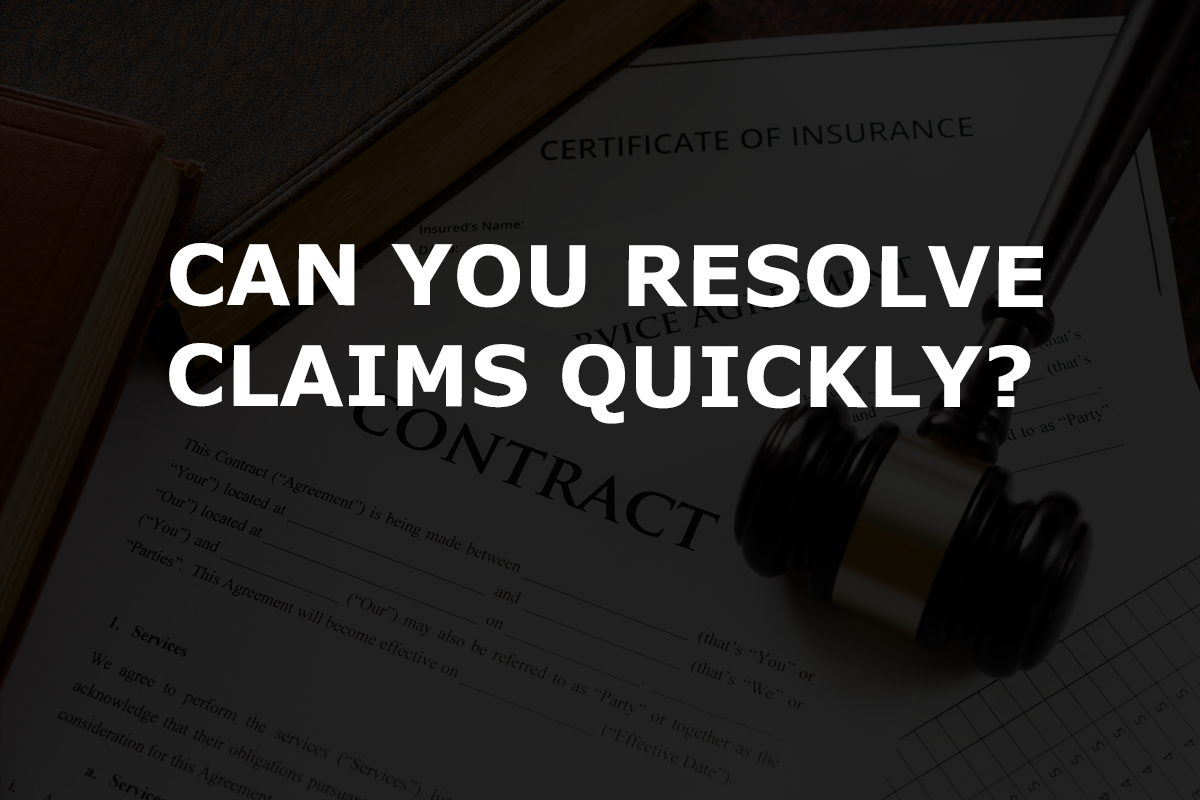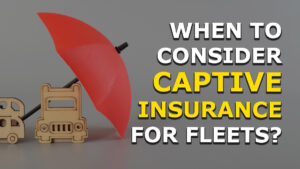The reason we have insurance is because accidents are an inevitable part of the business and it’s important to be prepared.
While making sure you are covered properly is critical when something happens, insurers want to know if you can help get claims resolved quickly and reduce the chance of litigation.
Why? Because insurers want to avoid litigation and potential nuclear verdicts as claim resolution takes a lot of time and money to resolve.
While a loss can be incredibly stressful, filing your claim doesn’t have to be.
Here are some tips before and after an accident to resolve a trucking claim quickly that makes underwriters happy.
Understand how to prevent insurance claims
Underwriters know that an accident will eventually happen.
To keep your insurance premiums low, your goal is to show underwriters you are doing everything in your power to reduce risk in your fleet and to show them that your safety story doesn’t suck.
This includes everything from:
- what drivers you hire
- how you train them
- what equipment is used
- what types of safety devices and data tools are added to your truck
- documentation on how this data is used to improve safety
- how efficient your maintenance program is
- and more
There is a lot to write about here, which is why I chat about it in our video series “In The Loop With Luke”. Check it out:
Do not delay filing an accident claim
The most common reason owner-operators and fleets delay reporting an accident is fear of an increase in their premiums. But this just makes things even worse.
Even if you believe the incident is not a big deal and want to handle the accident yourself, you should still file a claim because issues that cause increased expenses may arise after you think everything was resolved.
This delay in reporting the accident could threaten your coverage and lead to increased loss and pay-outs on your end.
[Related: Everything Drivers Must Do If Involved in an Accident]On the other hand, timely reporting:
- increases the likelihood that a claim is resolved quickly
- decreases the chance for litigation
- prevents evidence from not being obtained and getting lost or discarded
- allows for immediate company policy compliance
- and, ultimately, lowers claim costs or pay-outs
So, at the scene of the accident, it is important to get the other party’s insurance information but don’t wait for them to file the claim first. Do it yourself immediately.
This will document the accident information and assign an adjuster to the claim with whom you will work with to try to resolve your claim.
If you had medical injuries, be sure to get treatment right away and notify the adverse adjuster of your bodily injury claim.
Lastly, consider all the costs you have relating to the accident and demand reimbursement from the adverse party.
The better you organize and submit estimates, invoices and receipts, the quicker you will typically be able to resolve your claim.
These include:
- Out of pocket expenses
- Downtime/loss of use
- Towing: If your truck was towed, notify the insurance company of the bill and location of equipment.
- Rental expense: Pursue the cost of rental from the other insurance company but be aware that you will need to pay for the equipment rental up front. If a rental cannot be located, demand your lost income during your downtime.
- Cost of repair: Have the mechanic write a very detailed repair estimate outlining the damage and how it was due to the accident. If required, make sure the adjuster is made aware of additional damages found if truck is torn apart and approves the supplemental repairs.
- Lost value of the equipment: Your equipment may be worth less after the accident and repairs. You have the right to pursue this “diminution of value” claim against the other party in many states.
Maintain organized driver qualification files for safe driver evidence
Truck accidents are inevitable and more than 50% of these crashes are caused by driver fatigue and driver error, according to statements made by the Pennsylvania State Police motor carrier enforcement unit.
Litigators will look at the crash information and the driver files to find unsafe driver trends. Some of the documents they will look for include driver qualification files, training records, pre-and post-trip inspection reports, daily activity logs, and post-collision alcohol and drug testing results.
[Related: How to protect yourself from truck accident litigation with compliant driver files]If the company handles their hiring and driver qualification process well, there is a reduced chance of litigators finding unsafe driver trends that can harm the company with violations and heavy fines.
This will help you resolve a trucking claim and litigation quickly.
So, what should you look for?
Sometimes companies hire and retain employees who are not qualified to drive a commercial motor vehicle. Other times, the driver’s history and record might be okay, but the company did not build a complete driver file to reflect this.
[Related: What is Reptile Theory in Crash Litigation?]At a minimum, an annual review of driving performance and insuring driving credentials are valid can reduce unsafe drivers or pinpoint areas where further training could correct bad driving habits.
After an accident, driver information litigators look for:
- governmental agencies responses to inquiries regarding driver records
- driver’s past employment records and employers showing they contacted them (or repeatedly tried to) at the time of the driver’s employment
- driver’s workers’ compensation file
- medical evaluations of the driver
- drug test results, including negative results
- driver training testing documents and company safety meetings attendanceCAN
- driver’s DOT file
- prior violations
- driver’s annual reviews
- disciplinary records
Beyond these records, companies need to avoid these common driver file violations:
- not having a current DOT medical card on file
- not having the initial driving record on file (MVR)
- not having a DQ file for each driver that needs one
At CNS, our DQ file management system is completely customizable to your company’s needs. Our DOT Compliance Specialists will ensure all DQ files for your company will be ready to pass an FMCSA audit. Start managing your DQ Files now!
Why loss-run history is important to underwriters
After a claim is resolved, to prevent future underwriters from making any assumptions, provide an explanation of the loss activity.
Underwriters take a lot into account when looking at loss run reports, such as total claim occurrences, total loss amount, average amount of each loss, and how many miles the carrier has per loss.
A carrier that has 2 losses but runs 2 million miles is looked at a lot more favorably than a carrier with 2 losses and only has 100K miles.
The severity of a loss can also reflect a one-time catastrophe or signal a big problem in your business operations.
For example, frequent claims on the report could signal issues with your maintenance schedule, business practices, or manufacturing process.
Most underwriters ask for a 3-to-5-year loss run history or, for newer carriers, however long your company has been in business.
Tip: Your total incurred claims should not be more than the amount you paid for coverage in any given year.
Prevent insurance coverage gaps for your fleet
The Annual Insurance Review is one of the most neglected tasks by trucking companies, which can lead to very costly trucking insurance coverage gaps.
Asking the right questions in an annual insurance review can be the difference of thousands of dollars or even keeping your company alive and can help you determine the right time to change your commercial trucking insurance.
These questions include:
- If there is an accident, how much will my insurance policy pay?
- Is my fleet growing?
- Have I changed the type of cargo being hauled?
- Is your fleet focused on specific driving routes?
- What is and is not covered in my insurance policies?
- What are the main factors driving my premium?
Make sure you do not jeopardize your success by cutting corners on insurance. Assess whether you have any gaps in your coverage and address those concerns when getting quotes for a new commercial trucking policy.
Need a quote?
CNS Insurance is proud to offer Progressive’s Smart Haul ELD Program. Progressive is the #1 truck insurer and CNS Insurance is a top agency performer for Progressive Truck Insurance.
If you are interested in a quote, please call CNS Insurance at 717.625.0066 or email us at info@cnsinsures.com.
If eligible, you can choose to participate in Smart Haul when getting your insurance quote.
Have some extra time?
Expedite the quoting process by filling out a Complete Quote with all your vehicle and driver information.






